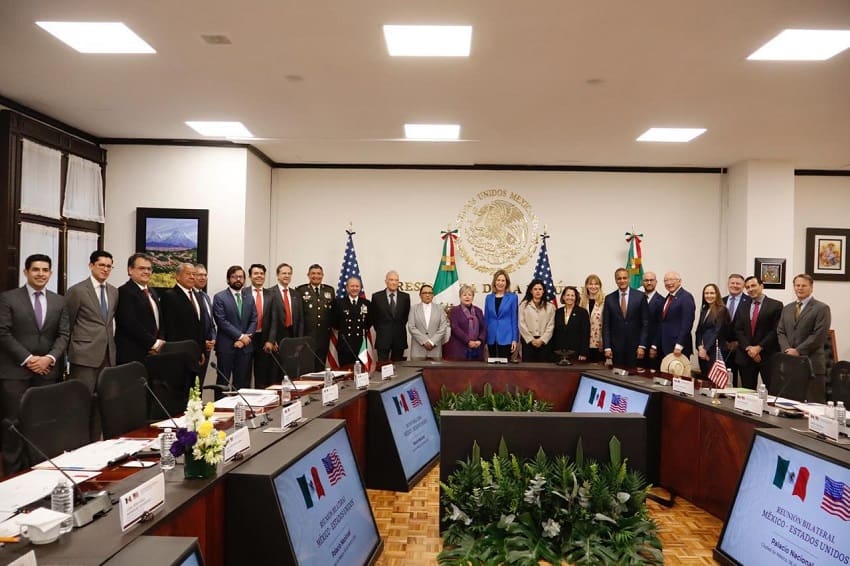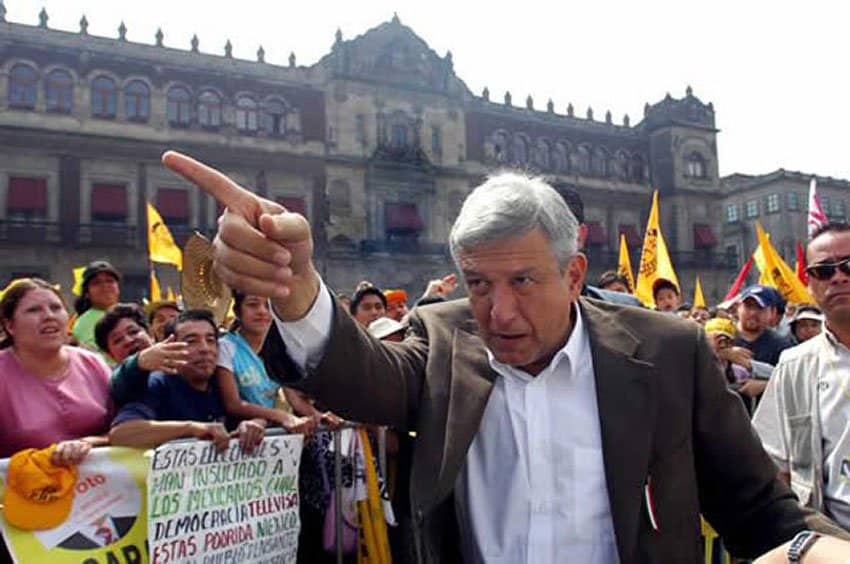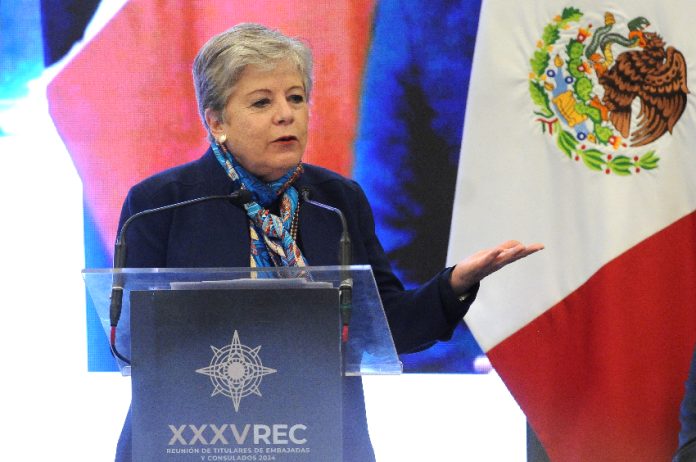A Drug Enforcement Administration (DEA) investigation into allegations that Andrés Manuel López Obrador’s 2006 presidential campaign received millions of dollars in drug money is a “closed case” for the United States government, according to Foreign Affairs Minister Alicia Bárcena.
Three media outlets reported last week on allegations that people working on the current president’s unsuccessful 2006 campaign accepted between US $2 million and $4 million from drug traffickers affiliated with the Beltrán-Leyva Organization and the Sinaloa Cartel.

López Obrador described the reports as “completely false” and suggested that U.S. government agencies were behind the leaking of information from the DEA probe, which reportedly concluded in 2011.
Speaking to reporters on Tuesday, Bárcena said that U.S. Homeland Security Advisor Liz Sherwood-Randall told the president at a meeting at the National Palace that the investigation is “a closed case for them.”
“This is an issue that occurred in 2006 and all the investigations they did in the United States were closed without finding any kind of crime,” she said.
“… It’s an investigation that in reality is old, right? A journalist gathers old reports from the DEA, but for [the U.S. government] this is a closed case,” the foreign minister said.

Bárcena was presumably referring to Tim Golden, who reported in ProPublica that “years before Andrés Manuel López Obrador was elected as Mexico’s leader in 2018, U.S. drug-enforcement agents uncovered what they believed was substantial evidence that major cocaine traffickers had funneled some $2 million to his first presidential campaign.”
Although López Obrador accused the United States government of “allowing these immoral practices ” — i.e. facilitating what he called “libel” — Bárcena said the Mexican government wasn’t seeking an apology from its U.S. counterpart.
“It doesn’t come from the office of President Biden, or the Department of State or the White House,” she said.
“This is an issue that comes more from the DEA … but what I want to say is that this really is a closed case,” Bárcena said, emphasizing that was the situation in both the United States and Mexico.
She asserted that there was electoral and political motivation for the publication of the allegations last week, given that both Mexico and the United States will hold elections this year.
Bárcena, a former high-ranking UN official, has played a key role in managing the relationship with the United States since replacing Marcelo Ebrard as foreign minister in the middle of last year.
Sherwood-Randall has been a frequent visitor to Mexico as the U.S. and Mexican governments seek to address a range of shared challenges including migration and drug trafficking.
In a statement released after Tuesday’s meeting, the Mexican government said that López Obrador had “reaffirmed” Mexico’s commitment to “working together with the United States to manage migration in an orderly and secure manner.”
With reports from El Financiero and El Universal
